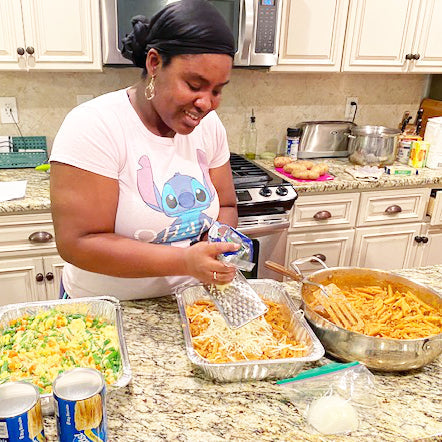The foster care system provides a vital safety net for children who have experienced trauma and instability. However, navigating the complexities of adulthood can be particularly challenging for young people who have aged out of foster care. Many lack the essential life skills that most of us take for granted, such as budgeting, cooking, and independent living. This gap in preparation can significantly impact their ability to thrive as independent adults.
Why are Life Skills Crucial for Foster Youth?
- Increased Independence: Life skills training empowers foster youth to live independently and make informed decisions about their lives. They learn essential skills like cooking, cleaning, budgeting, and navigating public transportation, enabling them to establish and maintain stable living situations.
- Improved Well-being: Acquiring life skills enhances overall well-being. Young people who can manage their finances, cook nutritious meals, and maintain a healthy living environment are more likely to experience better physical and mental health outcomes.
- Enhanced Employability: Many life skills, such as communication, problem-solving, and time management, are highly valued in the workplace. By developing these skills, foster youth increase their employability and their chances of achieving financial stability.
- Reduced Risk of Homelessness and Involvement in the Justice System: Studies have shown that young people who age out of foster care without adequate life skills support are at a higher risk of experiencing homelessness, involvement in the justice system, and other negative outcomes.
Key Life Skills for Foster Youth:
-
Independent Living Skills:
- Cooking and Nutrition: Learning to prepare healthy meals, understand food budgeting, and grocery shop effectively are fundamental.
- Home Management: Skills like cleaning, laundry, basic home repairs, and maintaining a healthy living environment are essential for independent living.
- Financial Literacy: Budgeting, saving, understanding credit, and managing debt are crucial for financial stability.
- Technology Skills: Proficiency in using computers, smartphones, and online resources is essential for navigating the modern world.

-
Social and Emotional Skills:
- Communication and Interpersonal Skills: Developing strong communication, conflict resolution, and social skills is vital for building healthy relationships.
- Problem-solving and Decision-making: Learning to identify problems, analyze options, and make informed decisions is crucial for navigating life's challenges.
- Self-care and Stress Management: Techniques like mindfulness, relaxation, and healthy coping mechanisms are essential for mental and emotional well-being.

-
Life Planning and Career Development:
- Goal Setting and Planning: Learning to set realistic goals, create action plans, and track progress is essential for achieving long-term success.
- Career Exploration: Exploring career options, developing job search skills, and building professional networks are crucial for finding and maintaining employment.
- Education and Training: Pursuing further education or vocational training can significantly enhance career prospects and earning potential.
How to Support Foster Youth in Developing Life Skills:
- Comprehensive Life Skills Programs: Implementing comprehensive life skills programs such as the one Hope + Vine just implemented is crucial. These programs should address a wide range of essential skills and provide ongoing support and mentorship.
- Mentorship and Role Models: Providing foster youth with mentors and role models who can offer guidance, support, and practical life advice can be invaluable.
- Transitional Living Programs: Transitional living programs offer a supportive environment for young adults aging out of foster care, providing them with opportunities to practice independent living skills and receive ongoing support.
- Community Partnerships: Collaborations community organizations and local businesses can provide access to valuable resources, training opportunities, and job placements.
- Policy Changes: Advocating for policy changes that support foster youth, such as extended foster care benefits and increased funding for life skills programs, is crucial for long-term success.
Equipping foster youth with essential life skills is not just about helping them survive; it's about empowering them to thrive. By providing comprehensive support and resources, we can help these young people overcome the challenges they face, build fulfilling lives, and reach their full potential.


